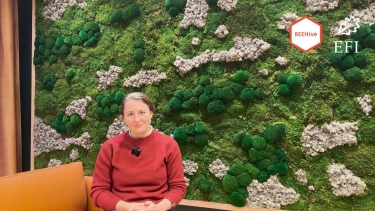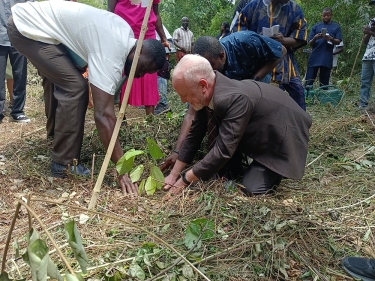International IUFRO Conference in Ljubljana, Slovenia - Call for papers

Deal for Green? Contribution of managerial economics, accounting, and cross-sectoral policy analysis to climate neutrality and forest management
4.05 Managerial economics and accounting | 9.05.03 Cross-sectoral policy impacts on forests
Ljubljana, Slovenia | 25. - 27. 9. 2023
Conference background:
In recent decades, the world has embarked on a journey to develop environmentally friendly practices for using natural resources while maintaining necessary economic growth. Around the globe, incentives are being created to achieve climate neutrality and accelerate the efficient use of natural resources, taking into account the well-being of society and the livelihoods of households. In particular, forests and forestry are the subject of multiple activities and measures to mitigate the negative impacts of local and global changes, which include changing climatic conditions, illegal logging, degradation and habitat loss, forest fragmentation, soil erosion, and decreased forest owner’s activity, among others. Forests are indeed crucial for biodiversity and for safeguarding various ecosystem services, which are increasingly recognized and valued by communities and EU policies. At the national and regional levels, they are governed by a number of interrelated regulations and are relatively well positioned under existing legislation. However, at the international level, inconsistencies persist and improvements are urgently needed to advance the issues and overcome existing barriers.
There is a great demand in society for various (forest) ecosystem services under uncertain conditions. In many parts of the world, the main focus of forests remains on wood products, which have been identified as the main source for the timber industry, energy sector, construction, pulp and paper industry, and households. The increasing demand for wood, combined with the energy and war crises, has caused the price of wood to skyrocket, bringing (again) new uncertainties for its use and supply. Yet, despite the optimistic visions of countries and unions to reduce dependence on fossil fuels, we are entering an era of "socio-technological gap" where no environmentally friendly energy alternative has yet been discovered and no location has yet been found that offers an alternative for the natural environment. Thus, we face increasing competition for natural resources - a situation that requires additional contributions from all disciplines and levels to improve it in a transdisciplinary effort.
The upcoming IUFRO conference in Ljubljana will address these issues, examining them from a variety of perspectives, including managerial economics, accounting, cross-sector policy analysis, decision making and optimization, operational research, and social and applied sciences. Both theoretical and empirical research and presentations are welcomed. In addition, the conference aims to promote the exchange of knowledge and experience among academics, researchers, managers, decision makers, and other interested parties at all institutional levels. Finally, the conference organizers welcome contributions that offer solutions for a transition to a carbon-neutral economy and better forest management for the benefit of humanity.
Paper submission: Please send your contributions by June 23, 2023 to e-mail iufro2023@bf.uni-lj.si
Take a look of the programme here. EFI member organisations are well represented amongst the keynote speakers.
Further info on the conference website.
Image: Adobe.stock - Photofires


